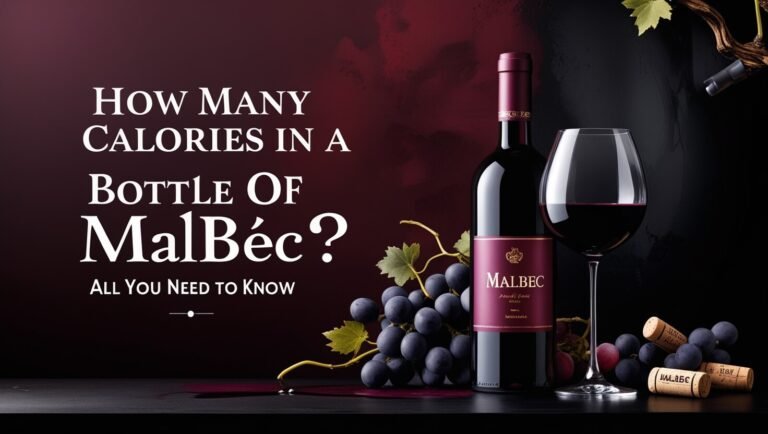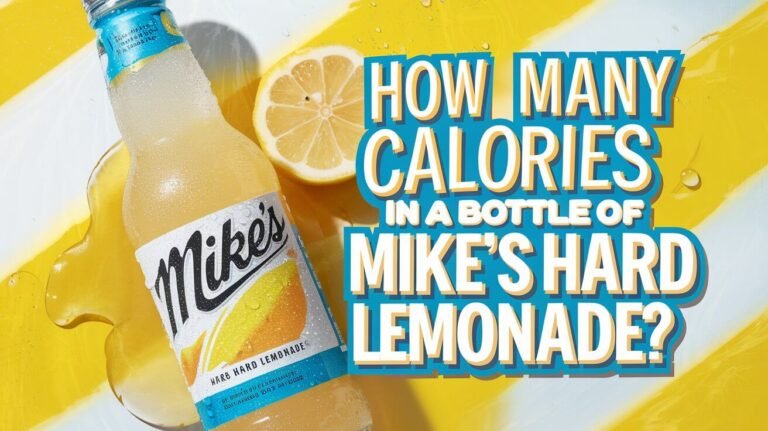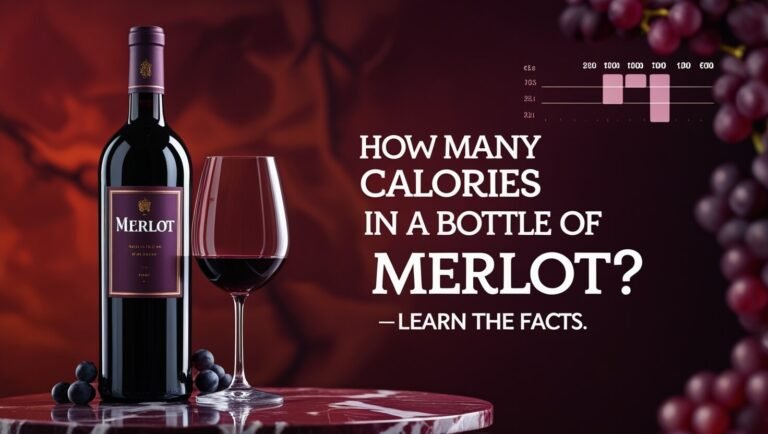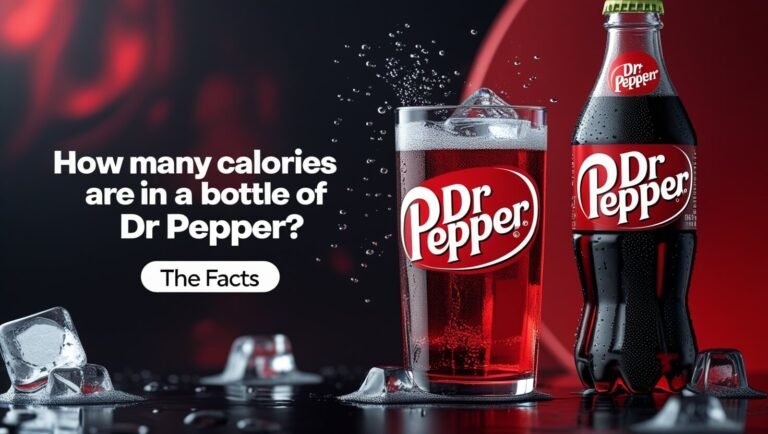How Many Calories in a Bottle of Cabernet?
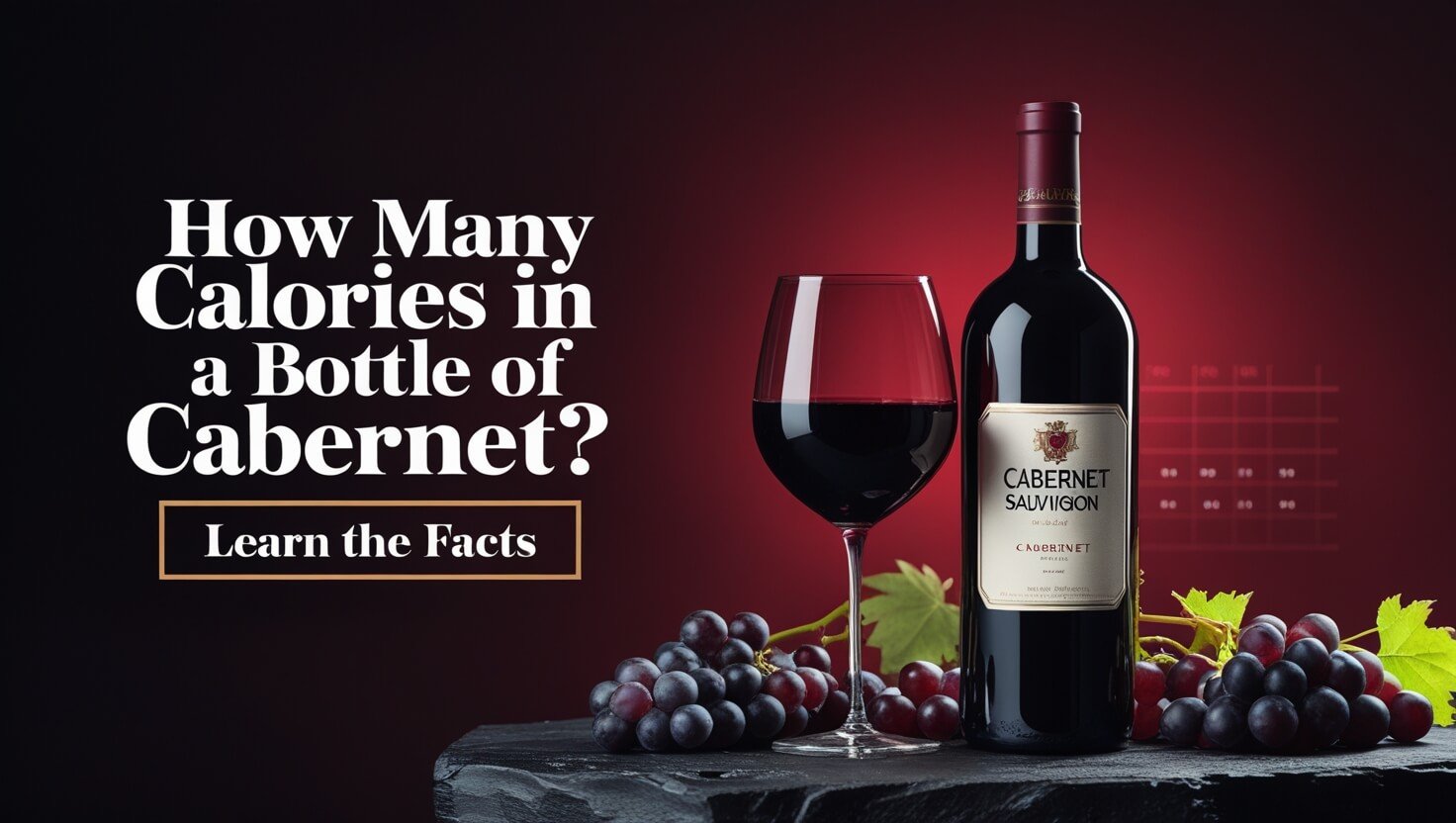
Many of us wonder about the calories in a bottle of cabernet when we enjoy a glass of wine. A standard 5-ounce serving of Cabernet Sauvignon has about 122 calories. This makes us curious about the total calories in a bottle.
A 750ml bottle of cabernet usually has around 610 calories. If you’re watching your diet, knowing the calories in your favorite wine is important. It helps you make better choices.
Let’s look at what affects the calorie count in cabernet. The calories in a 5-ounce glass can vary from 80 to 130, depending on alcohol and sugar levels. Knowing the nutritional values in a glass of Cabernet Sauvignon is also helpful. This includes carbs, fiber, sugar, protein, sodium, and potassium.
Calorie Count Breakdown for Cabernet Sauvignon
Understanding Cabernet Sauvignon’s calorie count is key. A 750 ml bottle has between 606 and 684 calories. A 125 ml glass has 101 to 114 calories, averaging about 120.
The calories come from alcohol, sugar, and residual sugar. Cabernet Sauvignon’s alcohol content is 13-15%, higher than other reds. This adds to the calories. Sugar content also varies, affecting the calorie count.
Standard Bottle Measurements
A 750 ml bottle of Cabernet Sauvignon usually has 620 calories. But, this can change based on the bottle and winemaker. Always check the label for accurate calorie information.
Alcohol Content Impact on Calories
The alcohol in Cabernet Sauvignon greatly affects calories. A 125 ml glass with more alcohol has more calories. Knowing this helps manage calorie intake.
Sugar Content Variables
Sugar content in Cabernet Sauvignon also varies. More residual sugar means more calories. Look at the label to choose wisely.
| Wine Type | Calories per 125 ml | Calories per 750 ml bottle |
|---|---|---|
| Cabernet Sauvignon | 120 | 620 |
| Pinot Noir | 115 | 615 |
| Zinfandel | 109 | 655 |
Knowing what affects Cabernet Sauvignon’s calories helps you choose wisely. Enjoy your wine while keeping calorie intake in check.
How Many Calories in a Bottle of Cabernet: Complete Analysis
Understanding the calories in cabernet is key. A 750ml bottle of Cabernet Sauvignon has about 610 calories. A standard 5-ounce serving has around 122 calories.
There are 3.8 grams of net carbs in a 5-ounce serving. This includes about 1 gram of sugar and 6 mg of sodium.
The calories in cabernet can change based on serving size and wine type. But, red wines like Cabernet usually have 120-125 calories per glass. Cabernet wine nutritional info is important for making smart drinking choices. Here are some key points:
- A 5-ounce serving of Cabernet Sauvignon contains 122 calories
- Net carbohydrates: 3.8 grams per 5-ounce serving
- Sugar content: approximately 1 gram per 5-ounce serving
- Sodium levels: around 6 mg per 5-ounce serving
Calories in Cabernet help you make better choices. Checking the calorie and nutritional info lets you enjoy wine while staying mindful of your diet.
Serving Size and Caloric Distribution
When it comes to cabernet wine calories, serving size is key. A standard serving of cabernet sauvignon wine is 5 ounces. It has about 122 calories. Knowing how many calories are in cabernet wine helps you make better choices, like those interested in cabernet diet facts.
A glass of cabernet sauvignon has about 3.8 grams of carbs and 0.9 grams of sugar. This info is important for those who want to add cabernet to their diet. They can enjoy its cabernet health benefits while watching their calorie intake. Here are some key points to consider:
- A 5-ounce serving of cabernet sauvignon contains approximately 122 calories.
- The carbohydrate content in a 5-ounce serving of cabernet sauvignon is around 3.8 grams.
- The sugar content in a 5-ounce serving of cabernet sauvignon is approximately 0.9 grams.
The serving size and calorie count of Cabernet wine help you make smart choices, enjoying its health benefits while monitoring your diet.
Cabernet Compared to Other Wine Varieties
When we talk about cabernet calories, it’s fascinating to see how they stack up against other wines. A standard glass of Cabernet Sauvignon has about 122 calories. This is quite low compared to other wines. For instance, Merlot has around 120 calories, and Pinot Noir has about 121 calories.
Looking at the calorie content in cabernet, it’s clear that different wines have different amounts. But generally, Cabernet Sauvignon is a low-calorie choice. Here’s a quick look at the calories in some popular wines:
- Merlot: 120 calories per 5-ounce glass
- Pinot Noir: 121 calories per 5-ounce glass
- Chardonnay: 120 calories per 5-ounce glass
- Sauvignon Blanc: 119 calories per 5-ounce glass
In summary, cabernet wine nutritional info makes it a good pick for those watching their calories. It has a rich taste and fewer calories than many other wines. Whether you’re a wine expert or new to it, knowing the nutritional facts helps you enjoy your wine in a balanced way.
Sugar Levels and Their Effect on Calorie Content
Understanding how sugar levels in cabernet wine affect its calories is key. The amount of sugar left in the wine can change its calorie count. Dry cabernet wines usually have less than 1 gram of sugar per serving, keeping calorie counts low.
The fermentation process is important in cabernet wine. Longer fermentation means less sugar left, which lowers calories. Vintage variations also play a role, with some vintages having more sugar than others.
For those who want to make smart choices, knowing about cabernet wine calories and diet facts is vital. Here are some important points:
- A 5-ounce serving of cabernet wine typically contains around 120-125 calories.
- The sugar content in a glass of cabernet wine can range from 0.7 to 0.9 grams, depending on the specific type of wine.
- Dry wines usually have less than 1 gram of sugar per serving, making them a popular choice for those watching their calorie intake.
To understand better, here’s a table comparing different wines’ calorie and sugar content:
| Wine Type | Calories per 5-ounce serving | Sugar content per 5-ounce serving |
|---|---|---|
| Cabernet Sauvignon | 122 | 0.9g |
| Merlot | 120 | 0.8g |
| Pinot Noir | 121 | 0.7g |
Nutritional Components Beyond Calories
Looking at Cabernet Sauvignon’s nutrition, we see more than just calories. The number of calories in Cabernet can change based on serving size and wine type. A typical 5-ounce serving has about 125 calories. Let’s dive into the other important parts:
Cabernet Sauvignon also has antioxidants and nutrients that are good for health. Resveratrol, found in red grape skins, is linked to heart health. This makes Cabernet a smart pick for those wanting a healthy wine choice.
| Nutrient | Amount per 5-ounce serving |
|---|---|
| Calories | 125 |
| Carbohydrates | 3-5g |
| Sugar | 0-2g |
| Antioxidants | Varying amounts |
Calories matter, but Cabernet Sauvignon’s nutritional profile is impressive. It’s a great choice for those looking for a healthy wine. Knowing its nutritional info helps you choose wisely and enjoy its health benefits.
Cabernet Selection Tips for Calorie-Conscious Drinkers
Choosing a low-calorie Cabernet Sauvignon wine involves several key factors. The alcohol percentage is a big one. Wines with higher alcohol tend to have more calories. For instance, a 5-ounce glass of Cabernet with 13-15% alcohol can have 120 to 150 calories.
Another factor is the residual sugar content. Each gram adds 4 calories. To make smart choices, read the label and look for wines with less residual sugar. Brands like FitVine and Cupcake LightHearted offer wines with fewer calories than traditional ones.
Label Reading Guidelines
To pick a low-calorie Cabernet Sauvignon, follow these label reading tips:
- Check the alcohol content: Wines with lower alcohol have fewer calories.
- Look for residual sugar content: Wines with less residual sugar have fewer calories.
- Check the serving size: Know the serving size and adjust your drinking.
Alcohol Percentage Considerations
The alcohol percentage greatly affects a wine’s calorie content. Generally, wines with higher alcohol have more calories. But, some wines, like those from Left Bank Bordeaux, might have fewer calories. This is due to their grape blend and winemaking techniques.
| Wine Type | Calories per 5-ounce serving |
|---|---|
| Cabernet Sauvignon | 122 |
| Merlot | 122 |
| Pinot Noir | 115-117 |
By considering these factors and following label reading tips, you can enjoy your favorite Cabernet Sauvignon wines. This way, you can keep track of cabernet wine calories and stay informed about cabernet diet facts and cabernet health benefits.
Dietary Considerations When Drinking Cabernet
When you add cabernet to your diet, knowing its calorie count is key. A 125ml glass of Cabernet Sauvignon has about 120-125 calories. A 175ml glass has just under 160 calories. This is lower than many other red wines.
Understanding the nutritional info of cabernet is important for smart drinking choices. A 125ml glass of Cabernet Sauvignon has 3.8g of carbs, with no sugar and 0.1g of protein. A 175ml glass has 0% fat, 3% protein, and 97% carbs.
Here are some popular Cabernet Sauvignon brands and their calories per 5oz (147ml) glass:
- Barefoot Cabernet Sauvignon: 122 calories
- Stags Leap: 125 calories
- Horse Heaven Hills: 130 calories
The calorie count can change based on the brand and type of Cabernet Sauvignon. Being aware of cabernet calories and nutritional content helps you enjoy wine while keeping your diet balanced.
In Closing
As we wrap up our look at Cabernet Sauvignon’s calories, it’s clear it can fit into a healthy lifestyle. Knowing the nutritional info and calorie facts helps wine fans make better choices. This way, they can enjoy it without worrying too much about calories.
Cabernet might have more calories than some wines, but it’s full of flavor and health perks. Just remember to watch your serving sizes and alcohol content. This ensures Cabernet is a good choice for a healthy cabernet diet.
Wine lovers can keep enjoying Cabernet’s rich taste while staying healthy. With the right knowledge and a balanced approach, it’s a great addition to a healthy lifestyle.

